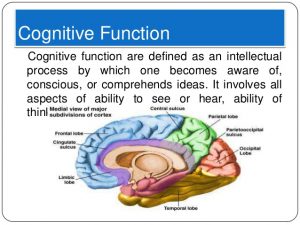While most people have a general idea of what psychology is, if you asked them the question directly of “What is psychology?” you’ll find most people fumbling around to give a clear and concise answer. The truth is that to get a full understanding of the field of psychology, even on an overview type of level, you will need a lot more than a one or two sentence definition that could come straight out of the dictionary. Psychology is a massive field that has an abundant number of niches and specialties that require specific study in training to practice in. So for a fuller understanding of what exactly this mind science is and what it has to offer read on!
Basic Psychology Definition
While the word “psychology” can be used in a couple of slang ways, as well, they are all related to the main definition. Psychology is the scientific study of the human mind and how it works. In particular, psychology likes to focus on how the mind’s functions change how individual people act, why they do what they do, and how behavior can be affected either good or bad based on training, conditioning, or changes. Psychology is called the science of the mind for a reason.

Because this is the study of how the human mind works when it comes to people, attitudes, and behaviors, and many times when psychology is used in a related slang it has to do with related things such as a thought process or way of thinking. Examples of this would be “the psychology of a champion” meaning the mindset, or “the psychology of the Cold War” when talking about how an entire nation or group of people feel. (source)
Looking At The 3 Areas Of Psychology
Psychology focuses both on conscious and unconscious choices related to the mind. Individuals who have studied this field have a long understood that some behaviors are due to conscious active thoughts while others are strongly influenced by unconscious thoughts that the individual person is often not even aware of. The conscious and the unconscious are different parts of each section of psychology, and this social science attempts to study both in order to come to a fuller understanding of how people work and why they do what they do.
That being said, beyond the initial study a professional psychologist can be either a researcher, an academic, or a professional practitioner. It is worth noting that there were three different potential ways that a psychologist can be labeled. It is widely accepted that in the active field of psychology a psychologist can actually be labeled as a behavioral, cognitive, or social psychologist. While these are three very distinctive fields within the greater study of psychology it is worth noting that there are times where there is a large amount of overlap.
Behavioral: What Is Psychology Of Behavior All About?
The behavioral psychology model is based around several pillars of evidence backed beliefs (important note: like any area of science or social science, theories are always changing and there is often conflicting or confusing evidence, so this is it to say these are set in stone but that there has been study that allows individuals to believe in these tenants based on evidence that suggests they could be correct – or at the very least, it has not been proven incorrect up to this point) that they believe helps to explain most, if not all, of the influences behind individual human behavior.
The general idea in this field of psychology is that mental and physical ideas, responses, or activity actually comes from your internal factors like muscles, glands, and your thoughts reacting to external stimulus. If this sounds a lot like the old experiment of Pavlov’s dogs, is because this field actually is based on the early work of Russian physiologist Ivan Pavlov.
There are seven main pillars behind the field of behavioral psychology. Those are:
– Behavior is conditioned through the outcomes of consequences both good and bad from past events
– Humans are close enough to animals that human behavior can be understood through studying animal behavior
– Only measurable effects are worth studying
– Repetition alone is enough to bring mastery given enough time
– Knowledge is given by an instructor and taken by a learner
– Instructors have responsibility to change the learner’s behavior, not the thinking patterns
– Mind and consciousness does’t exist when it comes to scientific investigation
Aside from Pavlov, the field of behavioral psychology really developed under psychologists to follow including John Broadus Watson, and of course the famous B.F. Skinner. This was considered the mainstream field of psychology from the 1920s through the 1960s, although it has given way to cognitive psychology since then. That being said, there’s still a lot to be said about the tenants of this field and parts of it are still used in many other practices and in conjunction with study in the other fields.
Cognitive: What Is Psychology Of Thought All About?
Cognitive psychology wants to know what is happening inside an individual person’s mind that creates that seemingly

obvious link between stimulus (often referred to as input) with individual response (often referred to as output). Cognitive psychologists will spend most of their time studying the many different internal processes that can affect how an individual reacts externally. This includes a wide variety of processes that includes attention, language, memory, perception, judgment, and thinking.
The cognitive model psychology believes that both mental and even physical activity are best explained using a model that describes the individual and their internal process as being similar to a computer with information processing ability. In other words, understanding how the mind works and thus how individuals react is best done by looking at how individuals learn, perceive, remember, and think. Cognitive psychology is often seen working hand-in-hand with modern fields such as neuroscience, philosophy, linguistics, and even mathematics.
There are six major tenants that make up how cognitive psychology works in its study of the human mind.
– How animals behave should not be directly applied to studying human behavior, but machine learning is a more accurate model
– Common human behavior can only be understood to studying the mental processes underneath the surface
– Understanding comes through the conscious development of learning strategies and proper structuring of learning environments
– It is the interaction between an organism and the environment which influences its knowledge and behavior (and thus future reactions to the environment)
– Knowledge is not acquired but is created by a learner based on processing past and current input
– An instructor’s role is to focus on encouraging exploration and organization of new information by the learner
Cognitive psychology talks about tracing its original roots all the way back to the Greek philosophers (the most famous three obviously being Aristotle, Plato, and Socrates) but in modern times this is a field that has come together as the resultant work of a large number of psychologists over 150 years including, but not limited to, William James, Wilhelm Wundt, Edward Chase Tolman, Jean Piaget, and more.
The advance in computers, computer technologies, neuroscience, and AI means the cognitive model is likely to grow even stronger as time continues. (source)
Social: What Is Psychology Of Interpersonal Social Interactions All About?
The social branch of psychology mostly deals with studying social interactions between individuals. This isn’t just about the interaction itself but how those interactions originate, why they take the direction they do, as well as the effects they have on the individuals. The dictionary definition would call social psychology the social scientific field that focuses on understanding the causes and nature of specific individual behavior in various social situations and circumstances.
This is not to be mistaken with sociology which studies issues like group think, propaganda, or how thought changes when it goes from an individual to a group of people. Social psychology still focuses on the individuals but within a more social context. This means a social psychologists are particularly interested in the specific factors will cause individuals to behave in one way or another when they were in the presence of others. This includes how to create conditions that encourage certain behaviors or actions while discouraging others.
This is why social psychology will deal with issues like beliefs, feelings, thoughts, intentions, and goals. This can be on a very general and surface level or can go deeper to things like social cognition, social influence, concept of the self, prejudice and discrimination, interpersonal relationships, as well as general social attitudes. Why do these things vary so greatly from one individual to another even if two people grow up in the same relative circumstances?
These are the types of questions that social psychology seeks to answer and goes in depth in the study of.
What Is Psychology Good For?
There are many different ways that psychology is used in society, and there is no denying its use in a multiple array of fields and situations. From individuals who use the knowledge of psychology to negotiate better salary or terms of the job, to gaining large groups of friends by mastering social interactions, to consultants who help companies understand cross-cultural ways of thinking there are many different ways that psychology works in society even outside of the classic: a psychologist’s office.
Therapy is probably the most common use of psychology by professionals, and is one that has been extremely useful. A good therapist can go a long way towards helping to treat issues with depression, anxiety, post-traumatic stress disorder (PTSD), dealing with trauma, changing negative behaviors, couples therapy, and the wide array of other issues. There’s no question that the majority of psychologists are involved in therapy in some way, shape, or form. Psychology can be an effective way to help damage individuals return to a healthy normality, help good individuals become great, and of course psychology is critical towards helping the victims of crimes or individuals who experienced a truly traumatic experience.
One area that certainly set psychology apart from other sites is, even social sciences, is the fact that as a constantly growing field where as opposed to being forced to a rigid standard psychologists are actually allowed and encouraged to be innovative and creative in finding new treatments, options, and processes that can be applied not only to individuals but to how entire social structures, companies, organizations work.
While this just scratches the surface of answering the question “What is psychology?” there is enough here to give you a very solid idea of what psychology is, what it focuses on, and an overview understanding of why this particular social science is so important.
